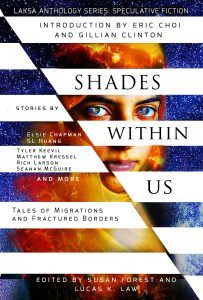Guest Post by Susan Forest
You’ve chosen beta readers from more than one source who understand your genre, you’ve given them your best work so they don’t correct flaws you know about, and you receive their feedback. But how do you organize the feedback, process, and implement it?
Knowing how to effectively deal with feedback will greatly help and improve your manuscript and will turn beta readers into fans.
First, it’s helpful to receive your feedback, when possible, in both written form (line edits and/or written comments) and verbal form. A nice protocol is to invite your three beta readers over for snacks or out to a restaurant for coffee and dessert. This is not only a way to thank them, but to bring them together by a specified deadline, to give feedback.
During this meeting, ensure you set a tone of professionalism (it’s not just social) and take notes without interrupting (except to clarify misunderstandings). There is no point in taking up time explaining what your story was supposed to say—if they didn’t get your message, that’s feedback, too.
When I get home from such a meeting, I first organize my comments into two types: line edits and global revisions. The line edits are easy to get through fairly quickly. Here, you can clear up typos and small wording or sentence changes that you agree with. You can ignore the occasional edit that is clearly wrong, or at least, wrong for you.
Sometimes, a line edit your beta reader gives you includes something bigger: a place where the reader was confused, where their comment has implications for several places in the manuscript, or where the comment gets to deeper thematic or character arc issues. Make a note of these, and add them to your second type of comments: global revisions.
By doing line edits first, you accomplish something important to the book, improve your novel, and give yourself a sense of achievement—and staying positive about your novel is critical, especially in the face of multiple notes to make changes.
The global revisions, especially on a longer work such as a novel, can be daunting. Begin by putting them all into a single document (perhaps in point form), and reduce their number:
- Delete any repetitions. But remember: if all three of your beta readers pointed out the same issue, it’s probably valid.
- Delete any changes you’re not going to make. Perhaps your beta reader isn’t really your audience (if he or she doesn’t read or understand your genre, they might be off base), missed the point of your story, or—although you respect their point—you simply know: this is not a change you’re prepared to make. Hey, you’re the author, and this is your book.
- Don’t try to please all tastes. If one reader wants you to make a certain change, a second gives you the opposite advice, and the third doesn’t want any change at all, remember that by trying to be all things to all people, you can edit the passion out of your story. Follow the critique of the reader whose vision is closest to what you are trying to achieve.
Next, phrase all comments in the positive. You can’t do anything with a negative comment. For instance, even if you agree that the comment, “Don’t make your protagonist weepy and weak” is valid, it can’t be implemented until you change it to “Angela should stand up for her own position in her relationship with Greg.” That is something you can work with.
Then, find out where (in which chapter and scene) you want to implement the change. In the above example, you might decide that Angela will tell Greg she intends to buy a cat in chapter 2, scene 1; choose the restaurant in chapter 9, scene 5; and demand he pay half the rent on their apartment in chapter 15, scene 4.
In some instances, a comment will be implemented in only one place in the book. In other cases, several different examples will find their way into different parts of the book (as in Angela’s example, above). In still other cases, the same detail will be applied to multiple places in the book. This could happen when you want to ensure rats are ubiquitous in your medieval fantasy.
Create a new copy of your manuscript (Angela and the Rat, v. 2.0) and insert the points you want to change at the top of each scene. You might want to use a different font for these notes, just to be sure the point doesn’t accidentally slip into your text. Now, instead of an overwhelming list of changes to make, you have anywhere from 2-5 points at the beginning of each scene—and some scenes will have no changes at all. This is much more manageable.
Revise each scene. You are likely to discover as you go through that some revisions simply won’t work. You might have thought you could slip in a reference to rats in chapter 3, but to do so turns out to be awkward and derails the point of the scene. No problem. When you’re revising chapter 4 you might find a more natural place to put it—and, if you already intend to refer to rats in 2-3 more places, you might not even need the chapter 3/4 reference.
You may find that implementing a change in one part of the book spawns other changes, such as the domino effect of logic and motivation, or a cool new idea that enriches and deepens your text.
And, when you have finished all the revisions (like the guy taking the wheelchair apart and putting it back together who discovers he has a handful of nuts and screws left over), you may find there are some revisions that somehow just never made it into the new draft. Do you really need them? Maybe. If so, go back and find a place to put them in. Or, maybe you don’t actually need them.
Read the entire manuscript again. This not only allows you to catch inconsistencies the revision process may have introduced, it gives you a chance to put your finger on the pulse of the book as a whole, so you can see how the build and flow of plot logic and emotions work together. This step has the added benefit of pumping up your enthusiasm for your novel: it is better! Revision worked! And, it wasn’t as painful as it first appeared.
It is a truism that, with rare exceptions, first drafts are not very good; that fiction comes to life under revision. It is also true that coming out of a meeting with your beta readers with a wheelbarrow full of suggested improvements can be daunting and depressing—so much so, it can be hard to even look at your creation again. By winnowing the comments down, rephrasing them with positive wording, and dividing them up into small, workable batches, you can really make use of their power, and come away with a vastly improved draft: one you are proud to send off to potential markets.

 Susan writes SF, fantasy and horror, and is an award-winning fiction editor for Laksa Media. Her novel, BURSTS OF FIRE, will be out in 2019, followed by FLIGHTS OF MARIGOLDS. She has published over 25 short stories, contributes to When Words Collide, and has appeared at many international writing conventions. https://fineartemis.wordpress.com.
Susan writes SF, fantasy and horror, and is an award-winning fiction editor for Laksa Media. Her novel, BURSTS OF FIRE, will be out in 2019, followed by FLIGHTS OF MARIGOLDS. She has published over 25 short stories, contributes to When Words Collide, and has appeared at many international writing conventions. https://fineartemis.wordpress.com.


